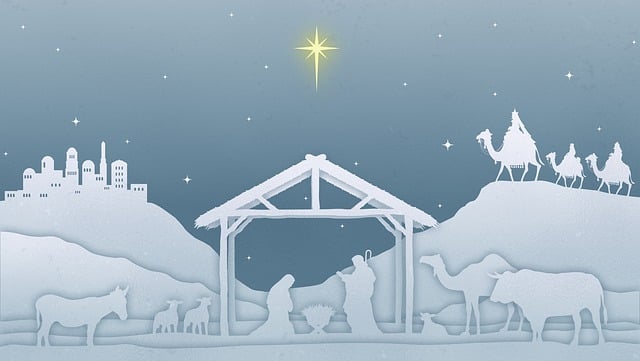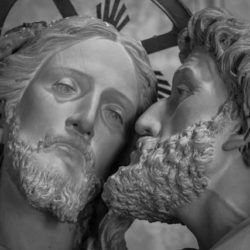What does the Bible say about the Nativity?

The Nativity, a pivotal moment in Christian history, signifies the birth of Jesus Christ, embodying hope, love, and divine intervention. The Bible, particularly in the books of Matthew and Luke, provides a detailed account of this miraculous event, which has since become a cornerstone of Christian faith and celebration during the Christmas season.
The Prophetic Announcement of Jesus’ Birth
- Isaiah’s Prophecy: The prophet Isaiah foretold the birth of a child who would be called “Immanuel,” meaning “God with us” (Isaiah 7:14).
- Angel Gabriel’s Message: The angel announced to Mary that she would conceive and give birth to a son, Jesus, who would be the Savior of the world (Luke 1:26-38).
The Humble Circumstances of Jesus’ Birth
- Bethlehem: Despite being from Nazareth, Mary and Joseph traveled to Bethlehem due to a census, where Jesus was born (Luke 2:1-7).
- Manger Birth: With no room available in the inn, Jesus was born in humble circumstances, placed in a manger, symbolizing accessibility and humility (Luke 2:7).
The Shepherds and the Angels
- Heavenly Announcement: Angels announced Jesus’ birth to shepherds, symbolizing that the Savior came for all, including the humble and lowly (Luke 2:8-14).
- Visiting the Savior: The shepherds, filled with joy, visited the newborn Jesus, spreading the good news to all (Luke 2:15-20).
The Visit of the Wise Men
- Following the Star: Wise men from the East followed a star, leading them to Jesus, showcasing that Christ is the light guiding humanity (Matthew 2:1-2).
- Gifts of Significance: They presented Jesus with gifts of gold, frankincense, and myrrh, each symbolizing aspects of Jesus’ identity and mission (Matthew 2:11).
Herod’s Fear and the Flight to Egypt
- A Threatened King: King Herod, feeling threatened by the birth of a new king, ordered the massacre of male infants in Bethlehem (Matthew 2:16).
- Divine Protection: An angel warned Joseph in a dream to flee to Egypt, safeguarding Jesus from Herod’s wrath (Matthew 2:13-15).
The Symbolism and Impact of the Nativity
- God With Us: Jesus’ birth signifies God’s presence among humanity, offering redemption and reconciliation.
- Hope and Salvation:: The Nativity symbolizes hope, love, and salvation, extending to all of humanity.
Living Out the Message of the Nativity
- Embracing Humility: Just as Jesus was born in humility, we are called to embrace a humble spirit, putting others before ourselves.
- Spreading Love: The Nativity invites us to spread love, kindness, and generosity, reflecting the love of God made manifest through Jesus.
- Being a Light: Just as the star guided the wise men, we are called to be a light to others, guiding them toward love and truth.
The Nativity, beautifully narrated in the Bible, is not merely a historical event but a profound message of hope, love, and divine intervention. It speaks of a God who so loved the world that He sent His only Son into it, not as a mighty king but as a humble child, accessible to all. The various elements of the Nativity story – from the angelic announcements to the humble birth in a manger, from the shepherds’ joy to the wise men’s journey – all weave together a tapestry that tells of God’s boundless love and the arrival of hope in a seemingly hopeless world. May the Nativity inspire us to embody the love, humility, and hope it represents, becoming bearers of the good news in a world that so desperately needs it.



























